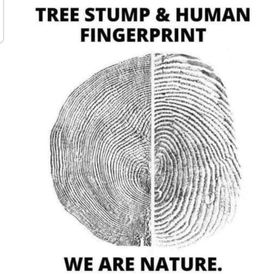Welcome & Introduction
Judith V. Jordan, Ph.D.
From the field of neuroscience, we now know that human beings need human connection just as we need air, water and food. We face a dilemma when we try to meet the standards of maturity and psychological health that the dominant culture espouses—individuation, competition with and control over others. In growth fostering relationships, we experience what have been labeled as the Five Good Things of zest, worth, clarity, productivity and the desire for more connection. We suffer when we experience isolation or when we are stuck in relationships that are not mutual or respectful.
Until recently RCT has been applied primarily to human-to-human interaction, but in this course we expand our understanding of our relationship with Nature by including an RCT perspective. The principle of mutual benefit is central to understanding all relationships. Crucial to the future of our planet is an awareness of our relationship with our earth and all her beings. Unlike the dominant white western culture, other cultures embrace a more respectful attitude towards the abundance of earth and our dependence on it and other beings. We are one. We belong to one another. We are responsible for one another. Nature has much to teach us. Like the noble Redwood trees whose shallow but far-reaching roots entwine with the roots of nearby trees to hold each other up—to mutually create strength and endurance. So often the connectedness around us is overlooked or made invisible to fit our prevailing narrative that extols independence and separation.
As RCT expands its understanding of connectedness and relational-being, it is only natural that we turn our curiosity to relationships between people, animals, plants, water, and the interrelatedness of all of Nature. The earth is our common home so we are accountable for our impact on this bountiful but also vulnerable world. Let us embrace that responsibility.
Connie Gunderson, Ph.D., LISW
With the increased global awareness of climate change/ecological destruction and the crucial role our natural world plays in our health and well-being, the extension of Relational-Cultural therapy into environmental/ecological relationships becomes increasingly pertinent to how we see and work with all living things and the natural world that surround us.
Ecological justice and advocating for ecological diversity and sustainability is central to relational practices. Since ecosystems embrace all people, all wildlife, all plant life, and all the natural elements, Relational-Cultural practitioners need to be informed of diverse ways to care for all life forms in context with natural lifecycles. Healthy ecosystems mean healthy communities. This project engages with Relational-Cultural scholars, and organizations dedicated to address ecological issues using Relational-Cultural perspectives.
The main objectives of this training are to increase understanding about the relationship between people, communities and Nature, as well as to provide practical ways to support and foster healthy, diverse, and sustainable ecosystems.
The training provides intercultural and intergenerational teachings about our integrated relationship with our ecological ecosystems.
In addition, this curriculum will:
-
Educate trainees from a cross-cultural perspective on emerging and existing ecological issues as well as their relevance to fostering a safe and healthy world
-
Contextualize ecological issues
-
Promote community engagement with new projects to protect wildlife, plant life, plus the air, water, and soil
-
Encourage the development and inclusion of ecological practice in educational and community-based settings










